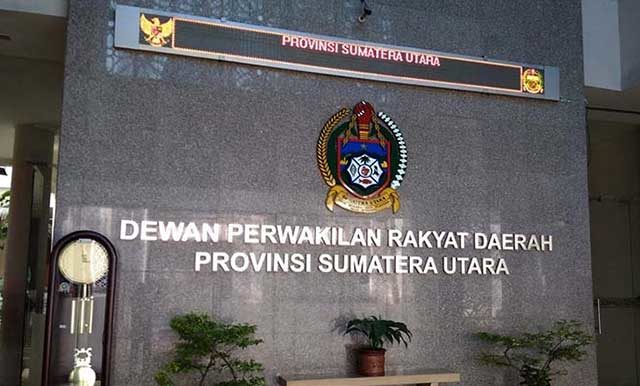Did you hear the story about the Regional Legislative Council (DPRD) in Indonesia that had a huge percentage of its members named as suspects by the Corruption Eradication Commission (KPK)? No, not the 18 Malang City Council members who were named suspects in huge bribery scandal a week and a half ago. We’re talking about the 38 current and former members of the North Sumatra DPRD who were named corruption suspects last weekend.
That’s right. Hot on the heels of a major regional graft case that saw over ⅓ of Malang’s City Council named suspects, rumors that the KPK were also going after the North Sumatra DPRD (fueled by a leaked circular) turned out to be true, with the anti-corruption agency officially naming 38 of the council’s current and former members suspects for allegedly accepting bribes from Gatot Pujo Nugroho, the former governor of North Sumatra.
About one year ago, Gatot was found guilty of bribing members of the DPRD to the tune of IDR61.8 billion (USD4.3 million) in Medan’s corruption court and was sentenced to four years in prison and a IDR250 million fine.
The bribes were allegedly paid to the council members in order to “smooth” negotiations over allocations in the regional budget.
Analysts blame the sharp increase in regional autonomy following the start of the Reformasi period, especially in regards to the allocation of regional budgets, for facilitating such large scale corruption cases to come about.
We should also note that the KPK named the suspects in this and the case of the Malang DPRD after receiving a “recommendation” by Political, Legal and Security Affairs Coordinating Minister Wiranto that they not proceed with investigations against candidates in June’s upcoming regional elections due to concerns that it might be perceived as the anti-corruption agency playing with politics. The KPK chose to ignore that recommendation and proceed with their investigations as usual.




